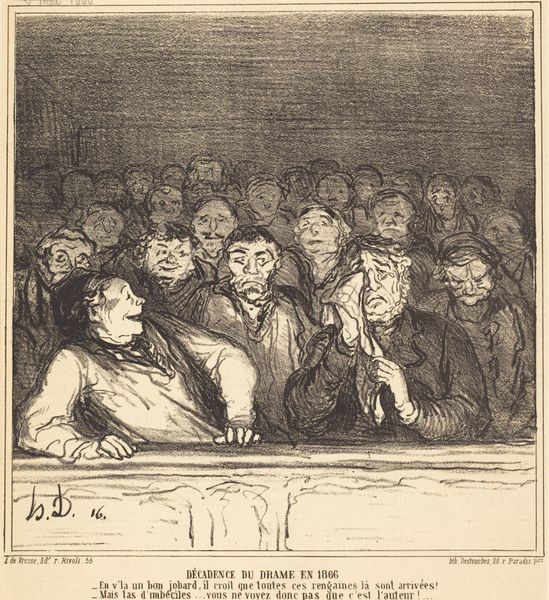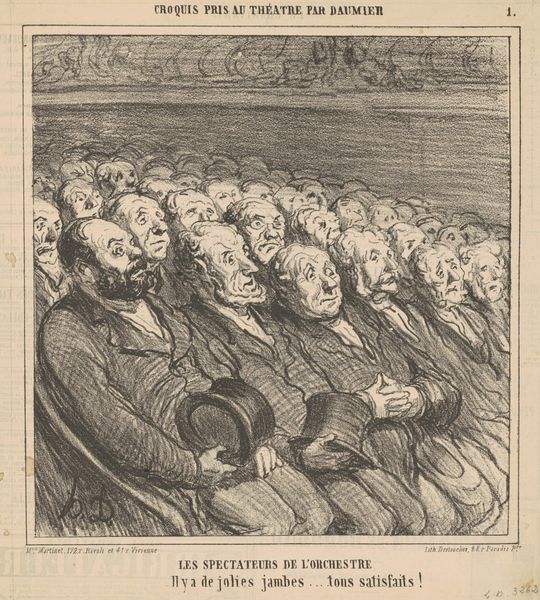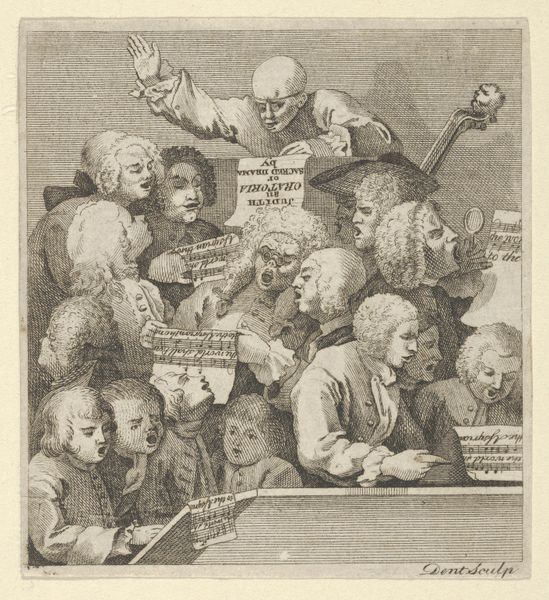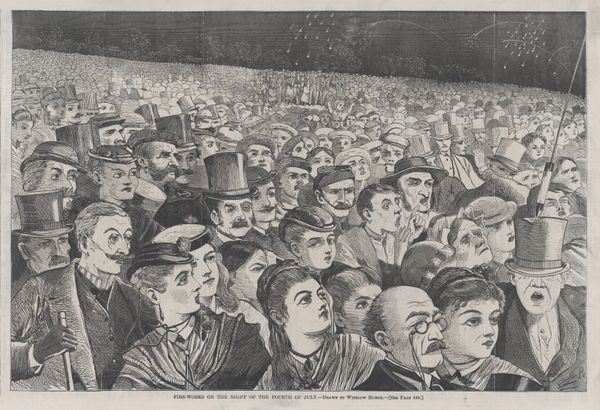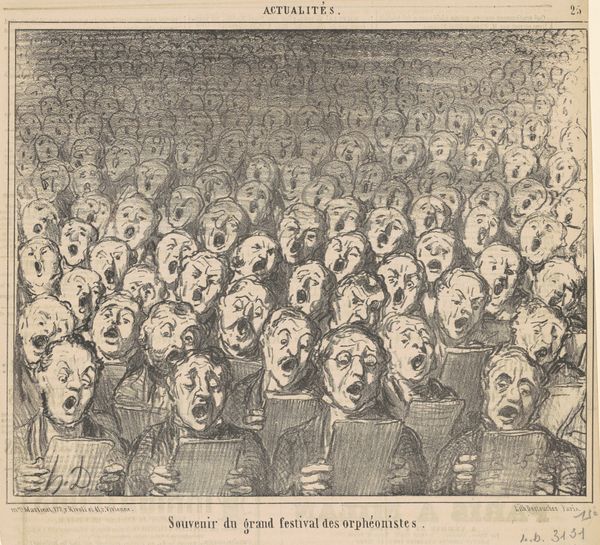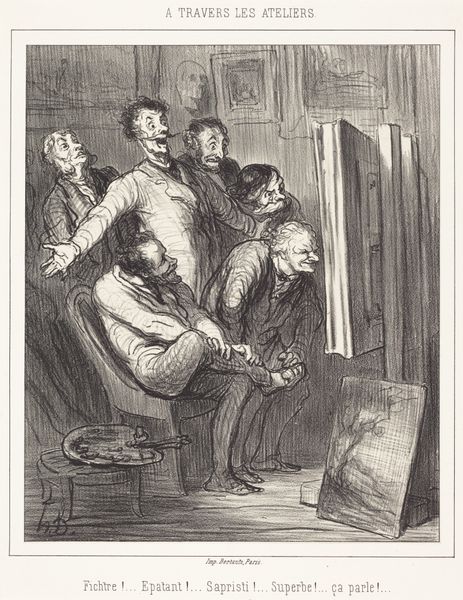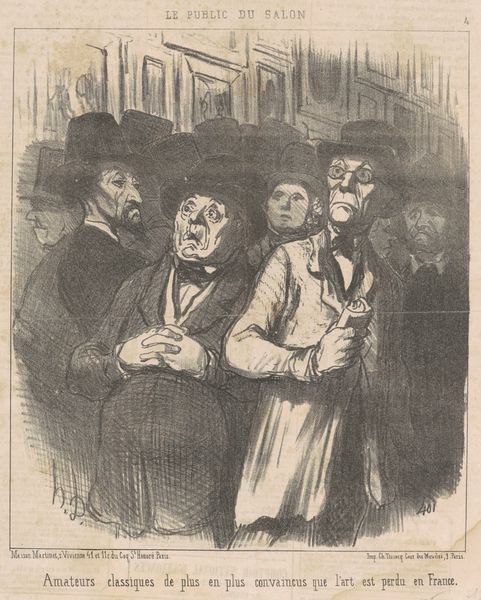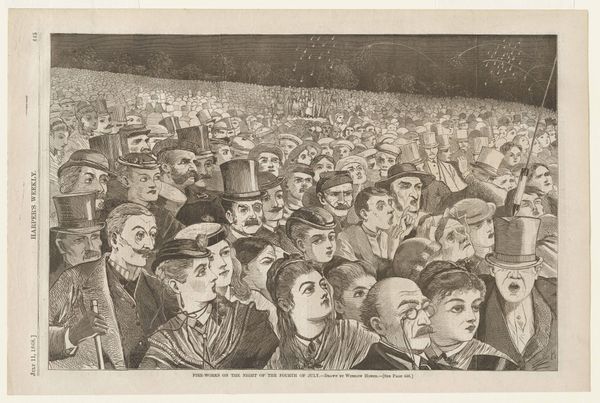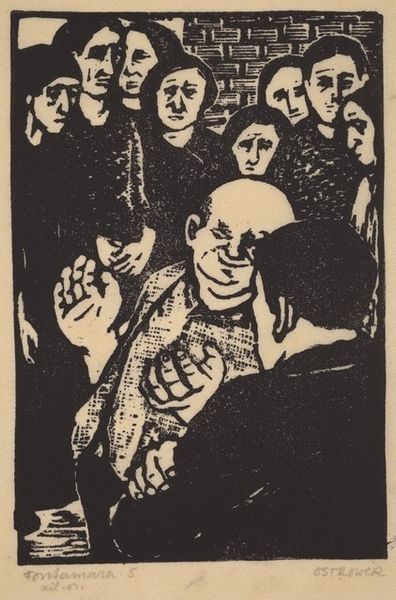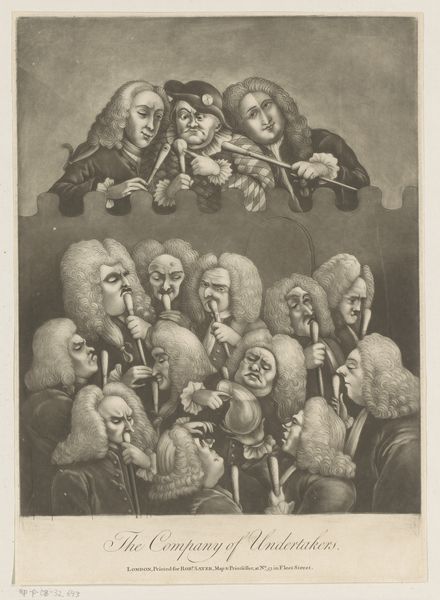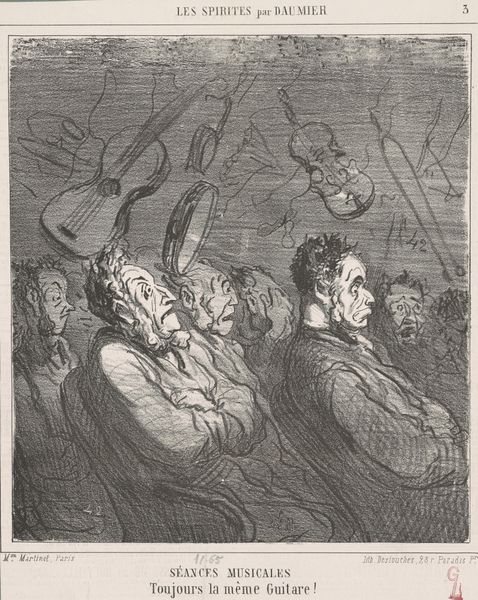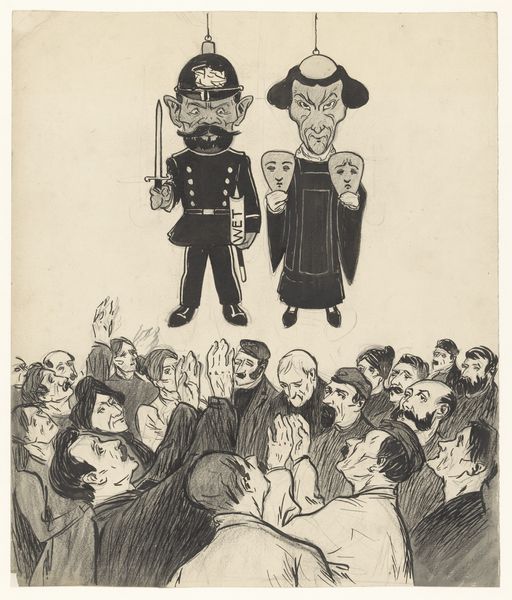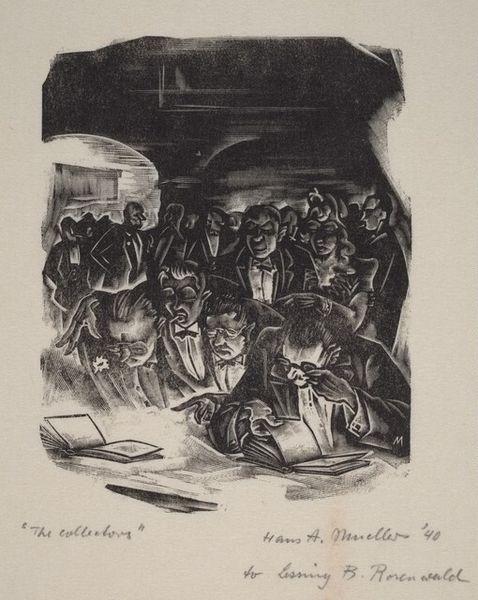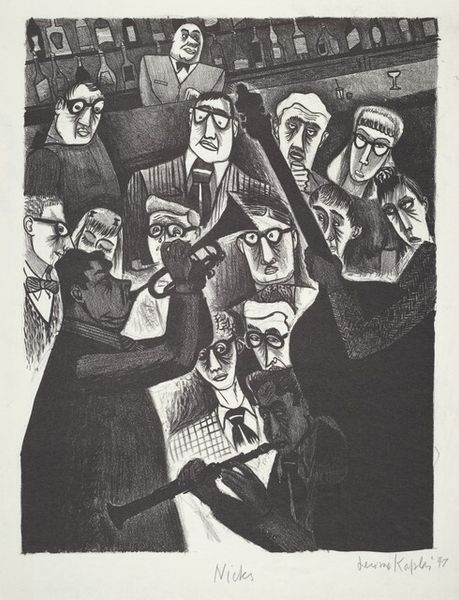
graphic-art, lithograph, print
#
portrait
#
graphic-art
#
lithograph
# print
#
impressionism
#
caricature
#
figuration
#
genre-painting
#
history-painting
#
realism
Copyright: National Gallery of Art: CC0 1.0
Curator: Ah, yes, here we have "On dit que les Parisiens...", a lithograph created in 1864 by Honoré Daumier. The full inscription translates to “They say Parisians are hard to please, [yet] on these four benches not one grumbles – true, these Frenchmen are Romans.” Editor: Well, my first impression? Slightly unsettling. Like a horde of happy zombies trapped in eternal applause. It feels...crowded. Almost suffocating, like trying to navigate the Metro during rush hour. Curator: The sheer density of figures certainly creates a sense of overwhelming sameness, but that's part of the satirical intent. It echoes Daumier’s frequent criticism of bourgeois society and its sometimes mindless approval of spectacle. The smiles, are they genuine or merely performative? The Romans are being referenced as spectators in a gladiatorial show, highlighting perhaps, how audiences can be easily swayed. Editor: Performative! Exactly! They are almost robotic in their unison. The eyes especially. They're all fixed, vacant even. And there is an odd juxtaposition of high society – suits, waistcoats – with something deeply primal. What's the narrative here? What are they watching? Curator: The implied spectacle is secondary; Daumier is primarily interested in the reaction, the mass psychology. He uses caricature to reveal what he perceives as the hypocrisy and superficiality beneath the veneer of respectability. The graphic quality itself, the stark contrasts of light and shadow achieved through lithography, heighten the dramatic and cynical impact. Think of how collective behavior can lead to both cultural continuity and periods of great collective madness. Editor: It reminds me a bit of political rallies these days – all those smiling, adoring faces. Gives you the shivers, right? Curator: Indeed, Daumier captures something timeless about human nature, about our tendency to conform and be swayed by the crowd. It's not just a depiction of 19th-century Parisian society, but a reflection on how we behave en masse, still valid now, 160 years later. Editor: So, in a way, it’s a rather cynical reminder of our own susceptibility. We like to think of ourselves as individuals, but maybe we're all just happy zombies clapping along to something we don't even understand. Heavy stuff. Curator: Yes, quite the commentary, don't you agree? A powerful reminder. Editor: Agreed. Something about its stark honesty keeps resonating in my thoughts... Definitely made me look at crowd dynamics differently, in the theatre and elsewhere.
Comments
No comments
Be the first to comment and join the conversation on the ultimate creative platform.
